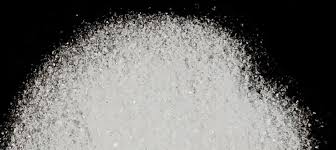Blog
Crystal Ketamine Effects

Crystal Ketamine Effects, Crystal ketamine, often referred to as “Special K,” is a powerful dissociative anesthetic originally developed for medical use. In recent years, its use has expanded beyond hospitals into recreational settings, where it is often used for its mind-altering effects. Understanding the crystal ketamine effects is essential for recognizing its potential impact on mental and physical health.
What is Crystal Ketamine?
Crystal ketamine is the crystalline form of ketamine hydrochloride. It is typically white or slightly off-white and can be crushed into a powder for snorting or dissolved for injection. Originally used in veterinary and human surgery, ketamine has also found a role in modern medicine for treating severe depression and chronic pain under strict medical supervision.
Short-Term Crystal Ketamine Effects
When used recreationally, the effects of crystal ketamine can be profound and intense. These effects include:
-
Dissociation: A feeling of being disconnected from your body or surroundings, often described as an “out-of-body” experience.
-
Visual and auditory hallucinations: Users may see or hear things that aren’t there, especially at higher doses.
-
Distorted perception of time and space: Time may seem to slow down, speed up, or feel irrelevant.
-
Euphoria or relaxation: Some users report a sense of calm or pleasure.
-
Impaired motor function: Slurred speech, unsteady movements, and lack of coordination are common.
-
The “K-hole”: At very high doses, users may enter a state of extreme dissociation, feeling paralyzed or detached from reality, which can be frightening.
Long-Term Crystal Ketamine Effects
Repeated or long-term use of ketamine crystals can lead to serious health problems:
-
Urinary tract and bladder damage: Known as “ketamine bladder,” this condition can cause pain, frequent urination, and even permanent damage.
-
Memory and cognitive issues: Chronic users may suffer from memory loss, trouble concentrating, and reduced mental clarity.
-
Addiction: Although not as physically addictive as opioids, psychological dependence can develop.
-
Depression and mood disorders: While low medical doses may help with depression, recreational abuse can have the opposite effect over time.
Medical Uses vs. Recreational Risks
It’s important to distinguish between the controlled, therapeutic use of ketamine in a clinical setting and the uncontrolled use of crystal ketamine recreationally. When administered by professionals, ketamine has shown promise in treating conditions like treatment-resistant depression and PTSD. However, recreational use lacks such safeguards and greatly increases the risk of harmful side effects.
Conclusion
The effects of crystal ketamine can be powerful and unpredictable, ranging from euphoric dissociation to serious physical and psychological harm. While it holds some legitimate medical uses, recreational use of ketamine crystals can be dangerous, especially without proper guidance and understanding of the risks. Anyone considering ketamine for mental health treatment should always consult a licensed medical professional rather than self-medicating.
